A well-rounded breakfast generally combines protein, fiber, and a variety of nutrients. If you want a wholesome morning meal, consider simple choices like eggs, whole-grain toast with toppings, nuts, and green tea.
An energizing breakfast can deliver sustained energy and help you stay satisfied for hours. An ideal morning meal typically features ample fiber, protein, healthy fats, and essential micronutrients.
Some packaged breakfast items are loaded with sugar, refined carbohydrates, and additives. Instead, opt for nutrient-rich whole foods whenever possible.
Below are 12 excellent foods and beverages to enjoy in the morning.

2. Greek yogurt
Greek yogurt is produced by straining whey and other liquids from milk curds, yielding a thicker product that contains more protein than regular yogurt.
It’s also relatively low in calories compared with many other protein sources. A provides 15 grams of protein for only 92 calories.
Other nutrients found in Greek yogurt include:
- calcium
- vitamin B12
- zinc
- potassium
- phosphorus
Certain varieties contain probiotic strains like Bifidobacteria, which help support digestion. To be sure your yogurt has beneficial bacteria, check for the phrase “contains live and active cultures” on the packaging.
If you want an even richer, higher-protein option, try the Icelandic style known as skyr.
Eating plain, protein-rich Greek yogurt with berries and other fruit complements its prebiotic and probiotic benefits. Adding dried fruit, oats, or nuts provides extra texture, fiber, and nutrients.
3. Coffee
Coffee contains caffeine, which enhances alertness and can boost both physical and mental performance.
It also supplies various polyphenols, compounds with antioxidant and anti-inflammatory effects.
Research indicates most adults can safely consume up to 4 cups (946 ml) of coffee per day or up to of caffeine.
During pregnancy, caffeine intake should be limited to 200 mg daily because higher amounts may raise the risk of complications.
Enjoy coffee black or with dairy or plant-based milk. Try to limit sugar and flavored syrups, as excess sugar increases health risks.
4. Oatmeal
Oatmeal is made from rolled or steel-cut oats and contains a soluble fiber called beta-glucan, which can help lower cholesterol and blood sugar and has antioxidant and prebiotic effects.
Because of the way oats are metabolized, they also for longer, helping curb mid-morning snacking.
Oats are also a source of:
- iron
- B vitamins
- manganese
- magnesium
- zinc
- selenium
They also contain roughly of protein per cup (81 g) of dry oats. To increase protein, make oatmeal with milk instead of water, stir in protein powder, or serve it with eggs.
You can combine raw oats with dried fruit, nuts, seeds, coconut, and other ingredients to make a homemade muesli.
Oats are often tolerated by those avoiding gluten, but because of cross-contamination risks, select oats labeled certified gluten-free if you have celiac disease or gluten sensitivity.
5. Chia seeds
Chia seeds are an excellent source of fiber.
of dried chia seeds delivers nearly 10 g of fiber.
This fiber is mainly soluble, meaning it absorbs water and expands, increasing the bulk of food in your digestive tract and helping you feel longer.
Compounds in chia may also help with:
- blood sugar control
- reducing cholesterol
- lowering inflammation
While chia seeds aren’t especially high in protein, pairing them with Greek yogurt, cottage cheese, or a protein shake raises the overall protein content, as shown in the recipe below.
High protein chia pudding recipe

- 1 ounce (28 grams) of dry chia seeds
- 1 scoop (25 grams) of whey protein powder
- 1 cup (240 mL) of your preferred milk
- 1/2 cup (74 grams) of berries
- stevia or another natural sweetener to taste, if desired
- Mix all ingredients in a bowl until well combined.
- Cover and refrigerate for at least 1 hour.
6. Berries
Berries are a low-calorie sweet option that are high in fiber and packed with antioxidants. Common choices include:
- blueberries
- raspberries
- strawberries
- blackberries
Berries are rich in anthocyanins, antioxidants that give them their blue, purple, and red hues. Diets high in anthocyanins may offer protection against:
- inflammation
- heart disease
- cancer
- type 2 diabetes
- other chronic conditions
For a flavorful breakfast, add berries to Greek yogurt, cottage cheese, oatmeal, chia pudding, or a smoothie.
7. Cottage cheese
Low-fat cottage cheese is a protein-dense breakfast choice, providing of protein per cup (220 g). This high protein content makes it very filling. One found it to be as satisfying as eggs.
Cottage cheese is also low in calories, supplying only per cup (220 g). That means it can be useful if you’re aiming to lose weight.
You can pair cottage cheese with many nutritious foods, including:
- berries
- peaches
- tomatoes
- cucumbers
- chia seeds
- ground flaxseed
- granola
8. Whole grain toast

Whole grain toast supplies fiber and complex carbohydrates. These are digested slowly, helping you feel fuller for longer and being less likely to spike blood sugar than pastries or white bread.
Whole-grain toast pairs well with many toppings, such as:
- mashed egg and tomato
- avocado and chili flakes
- natural peanut butter and banana
- cottage cheese and strawberries
- sliced figs and a drizzle of honey
- tuna
- sliced turkey or chicken
- baked beans
For more fiber and protein, try sprouted grain bread—two slices can provide around of fiber and about 10 grams of protein.
9. Nuts
Nuts of all kinds provide:
- magnesium
- potassium
- heart-healthy monounsaturated fats
- antioxidants
Their combination of protein, fat, and fiber also helps promote feelings of fullness.
A concluded that, for people without nut allergies, consuming a handful of nuts and seeds daily may reduce the risk of cardiovascular disease and other health problems.
Because nuts are calorie-dense, overeating them could contribute to weight gain. You’ll get the best benefits from plain nuts without added salt, sugar, or oil.
Sprinkling a tablespoon or two of chopped nuts over Greek yogurt, cottage cheese, or oatmeal is an easy way to boost your breakfast’s nutrient content.
10. Green tea
Green tea is a gentle morning beverage that can help motivate you for the day. It contains caffeine, though roughly half the amount found in coffee.
It also provides L-theanine, an amino acid that promotes relaxation and may reduce the jittery effects of caffeine. L-theanine may also lift mood and anxiety.
Green tea is a source of epigallocatechin gallate (EGCG), an antioxidant that may help protect against neurodegenerative diseases, such as dementia, and cellular damage.
11. Protein shakes or smoothies
Smoothies are another convenient breakfast choice. Blend water, dairy milk, or plant-based milk with nuts, banana, frozen berries, or other fruits and vegetables for a nutritious morning drink.
Adding protein powder boosts the protein content. A smoothie with protein can increase fullness and reduce hunger while offering a balanced, tasty breakfast.
If you exercise early, a smoothie may be better consumed after your workout than a heavy meal beforehand.
12. Fruit

Fruits are a light morning option, and many whole fruits make easy snacks to take with you.
Most fruits are relatively low in calories and provide fiber, vitamins, minerals, and natural sugars. The fiber slows absorption of the sugars, supplying steady energy. Mineral content varies by fruit.
Fruits high in potassium include:
- bananas
- oranges
- cantaloupe
- papaya
- mango
Many fruits are rich in vitamin C, an antioxidant important for skin health. Fruits high in vitamin C include:
- oranges
- guava
- kiwi
- strawberries
- papaya
- acerola cherries
- lychee
Fruits also supply various polyphenols and antioxidants depending on their color—for example, guava is rich in lycopene, while purple plums contain anthocyanins. Eating a rainbow of fruits helps ensure a wide range of antioxidants.
Consuming more fruits and vegetables is linked to lower risk of conditions such as:
- cardiovascular disease
- dementia
- diabetes
- obesity
Whole fruit contains more fiber than fruit juice, and many commercial juices have added sugar. Therefore, whole fruit is usually the better choice.
For a balanced breakfast, pair fruit with high-protein foods like eggs, Greek yogurt, or cottage cheese.
Frequently asked questions
What are healthy foods to eat for breakfast?
Healthy morning foods are nutrient-dense items that keep you full so you don’t get hungry again quickly. Try whole fruits, eggs, whole-grain toast, nuts, and smoothies for a satisfying start to the day.
What is the best breakfast for losing belly fat?
Foods high in protein and fiber help you feel full longer, reducing the chance of snacking on less healthy options. Good protein choices include low-fat cottage cheese, plain Greek yogurt, and eggs. Combine them with fiber-rich foods like whole-grain bread, oats, and fruit.
For beverages, choose water, green tea, or coffee without added sugar or cream.
What are 5 healthy breakfast combinations?
Five nutritious breakfast pairings include:
- An omelet with sautéed vegetables such as red peppers, broccoli, or mushrooms
- Greek yogurt with berries, nuts, and seeds
- Steel-cut oats with chopped apple, cinnamon, and protein powder
- Whole-grain toast topped with avocado and sesame seeds or peanut butter and banana
- A smoothie made with banana, protein powder, berries, spinach, and chia seeds
Which foods should I avoid for breakfast?
Limit items that are calorie-dense but low in nutrients and fiber, such as sugary cereals, pastries, and white bread. These are usually made from refined flour and have added sugar, making them less likely to keep you satisfied.
Other heavily processed choices, like sausages and bacon, are high in fat and sodium, may be harder to digest, and the risk of heart disease.
Many store-bought juices have added sugar—opt for homemade juice or whole fruit instead.
The bottom line
A nourishing breakfast can set a positive tone for the day and may reduce snacking.
The best morning meals are rich in fiber, protein, healthy fats, vitamins, and minerals.
Many healthy breakfasts are quick to prepare, such as whole-grain toast, eggs, green tea, coffee, and protein shakes. If you’re pressed for time, grab portable options like fruit or overnight oats to eat on the go.


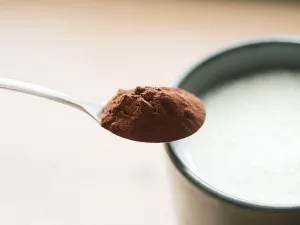




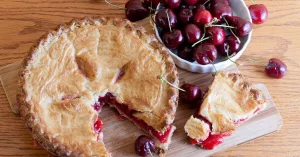






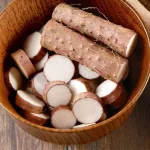







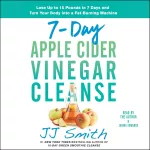

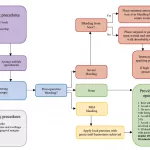
Leave a Reply
You must be logged in to post a comment.